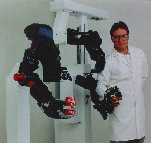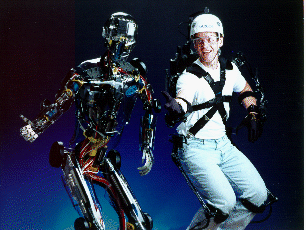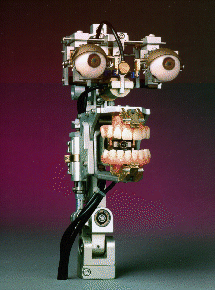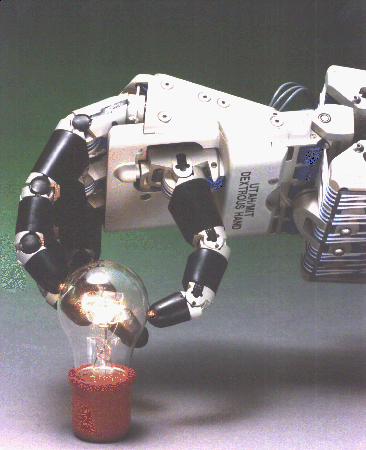|

|




|
Robotics Track |
- Robotics Track Courses
- M.S. and Ph.D. in Computing, Robotics Track
- M.S. and Ph.D. in Mechanical Engineering, Robotics Track
The Robotics Track is a program of study that may be taken either in
the School of Computing or the Department of Mechanical Engineering.
Regardless of the department, students undertake similar coursework
and are able to be supervised by robotics faculty in either
department. Prospective students will choose one or the other of the
departments to apply to, guided primarily by undergraduate preparation
and by which department the student wishes the graduate degree to be
in. Admissions procedures for the two departments are different, and
there are slight differences in the program of study. Both
departments offer M.S. and Ph.D. degrees. The M.S. program may be
taken as a course-only option, a project option, or thesis option.
Undergraduate degrees in engineering, science, applied mathematics or
computer science are all excellent backgrounds from which to approach
robotics and apply to the Robotics Track. Students are expected to be
strong mathematically, and to have some experience working with
mechanical, electrical, or computer hardware. Advanced programming
skills are desirable but not necessary for admission, since the
requisite skills will be taught.
Financial support is typically offered for Ph.D. students and for thesis M.S. students, through teaching assistantships, research assistantships, and fellowships. Our admissions standards are high, and hence the competition is rigorous for the limited number of open positions in the Robotics Track. Admission is based on an evaluation of an applicant's academic profile and research potential. Students with strong technical backgrounds, an intellectual curiosity about robotics, and an interest in hands-on experience with robots are encouraged to apply. We especially encourage applications from women and under-represented minorities.
The curriculum covers the fundamental elements of robotics (mechanics, control, and geometry) in three core courses. Students also select one course each from Perception (such as Computer Vision or Image Processing), Cognition (such as Artificial Intelligence or Machine Learning), and Action (such as Advanced Manipulation and Locomotion or System Identification for Robotics). Other courses are selected by students to tailor their studies for their particular research topics or interests and departmental requirements. This interdisciplinary training will prepare a student to pursue any topic in robotics, and to broadly approach many technical problems of interest to society.
For more information about the Robotics Track and Admission, please contact John Hollerbach (jmh 'at' cs.utah.edu) for the School of Computing and Mark Minor (minor 'at' mech.utah.edu) for the Department of Mechanical Engineering.